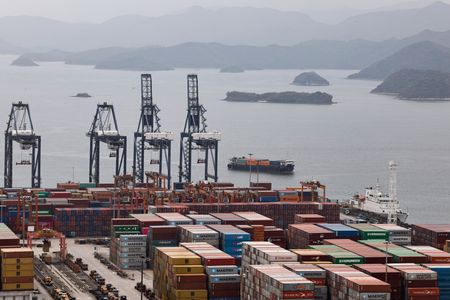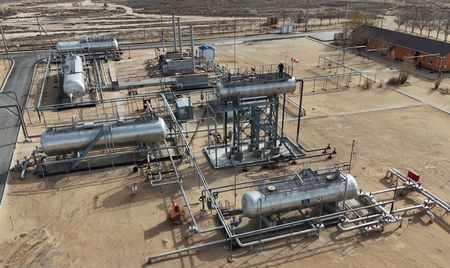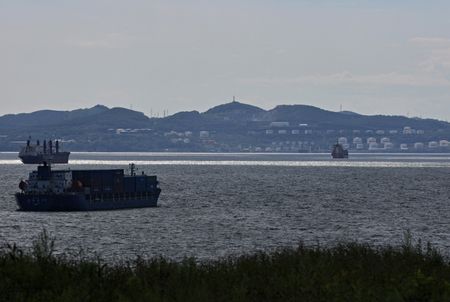By Francesco Guarascio
(Reuters) -Cambodia should share a feasibility study on the impact of a planned China-backed canal that would divert water from the rice-growing floodplains of Vietnam’s Mekong Delta, said the body overseeing the transnational river.
After months of uncertainty, Phnom Penh last week signed a deal with China to develop the Funan Techo Canal when President Xi Jinping visited Cambodia as part of a tour of Southeast Asia.
It was Beijing’s first explicit public commitment to the project, giving state-controlled construction giant China Communications Construction Company (CCCC) a 49% stake through a subsidiary, but also linking Chinese support to the “sustainability” of the project.
The Secretariat of the intergovernmental Mekong River Commission (MRC) that coordinates the sustainable development of Southeast Asia’s longest river said it had so far received from Cambodia only “basic information” on the project.
“We hope that further details, including the feasibility study report and other relevant reports, will be provided,” the Commission said in a statement to Reuters this week.
That would be needed “to ensure that any potential implications for the broader Mekong Basin are fully considered,” it added.
The canal has already created concern among environmentalists who say it could further harm the delicate ecology of the Mekong Delta, which is Vietnam’s major rice growing region and is already facing problems of drought and salination as result of infrastructure projects upstream. Vietnam is also a leading exporter of rice.
On Friday, the Cambodian government said the canal would have minimal environmental impact and “aligns with the 1995 Mekong Agreement” which governs cooperation among riverine countries in Southeast Asia.
The Mekong River, fed by a series of tributaries, flows some 4,900 kilometres (3,045 miles) from its source in the Tibetan plateau through China, Myanmar, Laos, Cambodia and Vietnam to the sea.
“Whether the Funan Techo Canal violates the 1995 Mekong Agreement depends on several factors, including its connection to the Mekong mainstream,” the Commission said, offering additional guidance to Phnom Penh and other member states “to ensure compliance”.
Cambodia, Laos, Thailand and Vietnam are members of the MRC while China and Myanmar are dialogue partners.
The Cambodian government did not respond to questions about whether it intended to share the requested documents.
Vietnam’s foreign ministry did not reply to a request for comment after the deal with China was signed, but the country has repeatedly asked Cambodia to share more information about the canal to assess its impact.
CHINA WEIGHS IN
Xi made no reference to the canal in his public statements in Phnom Penh but a joint communique issued at the end of his visit said China supported Cambodia in building the canal “in accordance with the principles of feasibility and sustainability”.
The deal signed by CCCC on Friday was for a 151.6 km (94.2 miles) canal costing $1.16 billion.
However, the Cambodian government says on the canal’s official website that the waterway would stretch 180 km and cost $1.7 billion at completion in 2028.
The higher cost reflects a short section to be built by Cambodian firms as well as bridges and water conservation resources, the government told Reuters without clarifying who would pay for the bridges and water conservation.
Cambodia’s deputy prime minister said in May 2024 that China would cover the entire cost of the project, which was put at $1.7 billion.
The canal is designed to link the Mekong Basin to the Gulf of Thailand in Cambodia’s southern Kep province. Much of the Mekong’s nutrient-rich sediment no longer reaches rice farms in the Delta because of multiple hydroelectric dams built by China upriver, a Reuters analysis showed in 2022.
The project agreed with China is also different from the original plan as it is focusing on boosting irrigation rather than solely pursuing navigation purposes, said Brian Eyler, an expert on the Mekong region at U.S.-based think tank Stimson Center.
The water diverted from the Mekong Delta “will be much more than previously described,” said Eyler.
(Reporting by Francesco Guarascio; additional reporting by Khanh Vu in Hanoi; Editing by Kate Mayberry)









